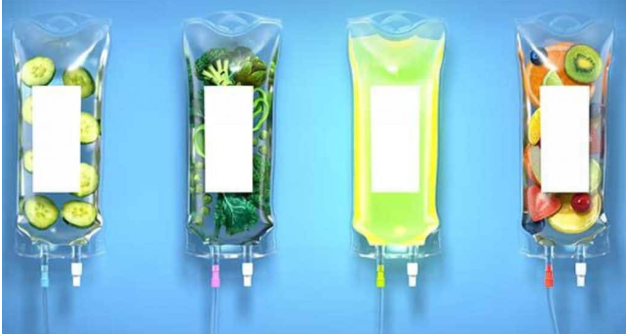10 things you should know about vitamin IVs

Vitamin IVs, or intravenous vitamin therapy, have been gaining popularity in recent years as a way to boost energy, improve athletic performance, and even cure hangovers.
This treatment involves injecting vitamins and minerals directly into the bloodstream, bypassing the digestive system. While some people swear by the benefits of vitamin IVs, others question their safety and effectiveness.
In this article, we’ll explore the science behind vitamin IVs and try to answer the question,
“Do vitamin IVs work, and are they safe?”
1. What are vitamin IVs?
Vitamin IVs are an alternative medicine treatment that injects a high concentration of vitamins and minerals directly into the bloodstream through an IV (intravenous) drip.
The idea behind this treatment is that bypassing the digestive system allows the body to absorb higher levels of nutrients than it would through oral supplements.
2. What vitamins are typically included in a vitamin IV?
The most common vitamins and minerals included in vitamin IV are vitamin C, B vitamins (including B12), magnesium, and calcium. Some IVs also contain amino acids, antioxidants, and other micronutrients.
3. Why do people get vitamin IVs?
People get vitamin IVs for a variety of reasons, including:
- Boosting energy and improving athletic performance
- Relieving stress and anxiety
- Boosting immunity
- Fighting fatigue and jet lag
- Curing hangovers
- Improving skin health
4. Are vitamin IVs safe?
While vitamin IVs are generally considered safe, some risks are associated with the treatment. The most common side effects of vitamin IVs include the following:
- Pain, swelling, or bruising at the injection site
- Infection at the injection site
- Allergic reaction to the solution
More serious risks include:
- Damage to veins or arteries from repeated injections
- Electrolyte imbalances, which can be life-threatening in severe cases
5. Do vitamin IVs work?
While some people swear by the benefits of vitamin IVs, there is limited scientific evidence to support their use. Most studies on vitamin IVs are small and have not been replicated, making it difficult to draw definitive conclusions about their effectiveness.
Some studies have suggested that vitamin IVs may have some benefits in certain situations. For example:
- Vitamin C IVs may help reduce the duration and severity of colds and other respiratory infections
- Magnesium IVs may help relieve migraines and cluster headaches
- B12 IVs may help improve energy levels and reduce fatigue in people with low levels of the vitamin
6. Who should not get vitamin IVs?
While vitamin IVs are generally safe, some people should not get them. These include:
- People with kidney or liver disease
- People with a history of heart disease or stroke
- People with allergies to any of the ingredients in the solution
- Pregnant or breastfeeding women
- Children under the age of 18
7. How are vitamin IVs administered?
Vitamin IVs are typically administered in a clinic or doctor’s office. The process involves inserting a small needle into a vein, usually in the arm, and then attaching a bag of solution to an IV drip.
The treatment can take anywhere from 30 minutes to several hours, depending on the type of IV and the dose.
8. How much do vitamin IVs cost?
The cost of vitamin IVs can vary widely depending on the location, type, and dose. On average, a single treatment can cost anywhere from $50 to $500 or more.
9. Does the FDA regulate vitamin IVs?
Vitamin IVs are considered a medical procedure and are regulated by the FDA. However, the FDA does not regulate the specific ingredients used in vitamin IVs, which means that the safety and effectiveness of these treatments largely depend on the practitioner’s expertise in administering the IV.
10. Conclusion: Are vitamin IVs safe and effective?
The question of whether vitamin IVs are safe and effective is a complex one that depends on some factors, including the specific type of IV, the dose, the individual’s health status, and the expertise of the practitioner administering the IV.
While there is limited scientific evidence to support the use of vitamin IVs for many of the conditions they are commonly used for, some studies have suggested that they may be helpful in certain situations.
However, it’s important to note that vitamin IVs are not a substitute for a healthy diet and lifestyle and should not be used as a replacement for conventional medical treatments.
If you’re considering getting vitamin IV, it’s important to research and talks to a qualified healthcare practitioner to determine if it’s the right choice for you. And if you do decide to go ahead with a vitamin IV, make sure you choose a reputable practitioner with the knowledge and experience to administer the treatment safely and effectively.